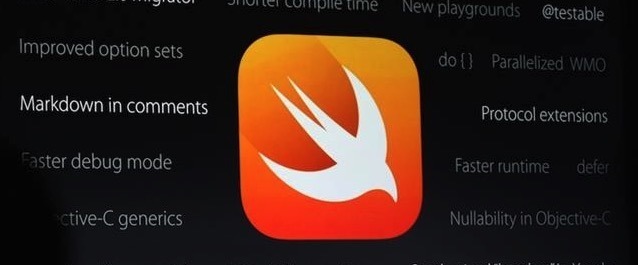Apple project lead Ted Kremenek discusses Swift 5 & how it is used internally
Apple's head of Swift development Ted Kremenek has provided insight into the development of Swift 5.0, the upcoming major milestone release for the programming language, with a podcast interview revealing not only what coders should expect, but also how Apple works out what new features to add to future versions.

Named the project lead of Swift development within Apple two years ago, Kremenek is the current manager of the Languages and Runtimes team, which handles Swift's refinement among other tasks. While Swift is being developed relatively openly, complete with its own dedicated website, Kremenek took time to discuss its development further in a podcast published on Tuesday.
Speaking on John Sundell's Swift by Sundell podcast, Kremenek discusses on ABI stability, referring to the application binary interface that works between program modules, with a stable ABI allowing for apps that are build with one compiler will be able to communicate effectively with those produced on another, for example. Kremenek explains the changes that had to be made to Swift to make it be ABI stable, and how the programming language stands to benefit from its implementation.
The podcast also covers how String has been improved in Swift 5.0, as well as how Apple uses Swift internally.
Swift is a core component of Apple's app ecosystem, and the company has been keen to teach others how to use the programming language as part of its Everyone Can Code sessions and larger software development curriculum in schools. Apple also teaches younger users how to code in Swift via the Swift Playgrounds app for iPad.

Named the project lead of Swift development within Apple two years ago, Kremenek is the current manager of the Languages and Runtimes team, which handles Swift's refinement among other tasks. While Swift is being developed relatively openly, complete with its own dedicated website, Kremenek took time to discuss its development further in a podcast published on Tuesday.
Speaking on John Sundell's Swift by Sundell podcast, Kremenek discusses on ABI stability, referring to the application binary interface that works between program modules, with a stable ABI allowing for apps that are build with one compiler will be able to communicate effectively with those produced on another, for example. Kremenek explains the changes that had to be made to Swift to make it be ABI stable, and how the programming language stands to benefit from its implementation.
The podcast also covers how String has been improved in Swift 5.0, as well as how Apple uses Swift internally.
Swift is a core component of Apple's app ecosystem, and the company has been keen to teach others how to use the programming language as part of its Everyone Can Code sessions and larger software development curriculum in schools. Apple also teaches younger users how to code in Swift via the Swift Playgrounds app for iPad.

Comments
That bit the article mentions about the ABI stands out. Having not used Swift, I won't comment on the specifics, but I will comment on the general case. Maintaining compatibility of interface between applications and modules built with different versions of a compiler is almost an absolute must. Effectively cutting a new application off from old modules is a really dumb idea. Lack of compatibility means that any modules I want to reference must also be recompiled, even if they're working fine. This rebuild brings with it risk, since the new compiler might have changes that change the way the code works, or removes a feature used by the old code (these aren't issues most of the time, but I've seen them both, especially with some C compilers), which means the old module has to be reworked to work around the compiler issue.
Not to mention the fact that the older build might still be required by still other modules, which means maintaining multiple versions, with potentially multiple versions of the source as well. Been there, done that, got the t-shirt. No thanks.
Now, that doesn't mean the interface shouldn't evolve and improve, by any means. Maintaining compatibility isn't that tough for a well designed compiler, and can be implemented in a number of ways. As interfaces evolve, perhaps include the backwards compatibility for old builds in every newly built application. Obviously this means including code might not ever be used. Or perhaps a compiler switch that says "include compatibility for version X.X modules." Better still if that detection were built into the compiler, so that when an older module is referenced, the needed compatibility is automatically included.
Lack of compatibility for modules built with older versions of the compiler (unless it's something like a security issue) just creates more, in most cases unnecessary, work for developers, including Apple's own developers.
1) it disempowered the technical experts who dominate product development decision-making and swings the focus back to the hard part.
2) it makes implementation cheaper. Kinda like Uber turned the ‘profession’ of doing something anyone can do back into a cheap commodity.
Of course, the same rule applies; not all subject matter expert’s can design.
https://m.youtube.com/watch?v=R4C_JciDsuo
Coding doesn't take some arcane talent, it just takes time and effort, just like, as others have said, reading and writing. It's something anyone can do should they be willing to put in that time and effort. Learning to do it well however, can consume one's entire life.